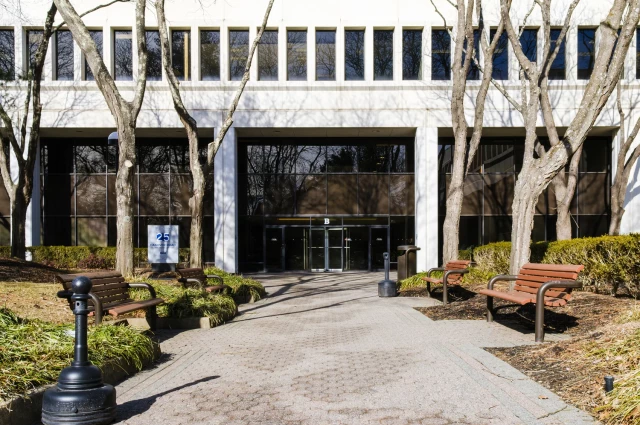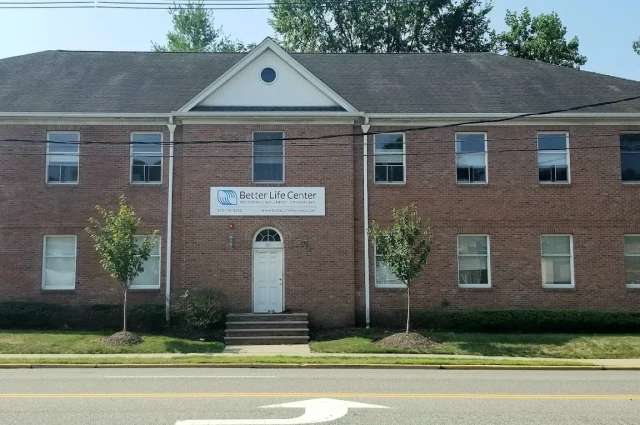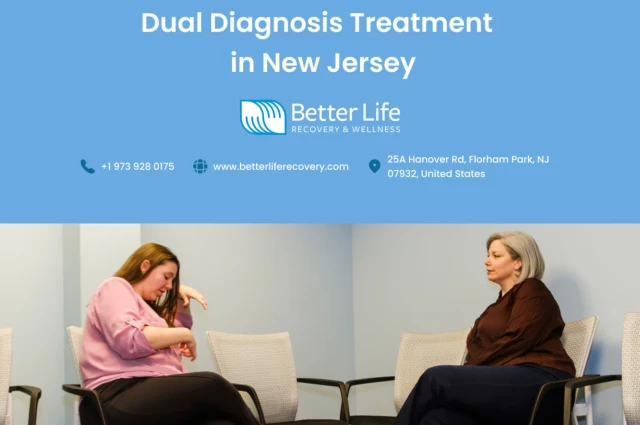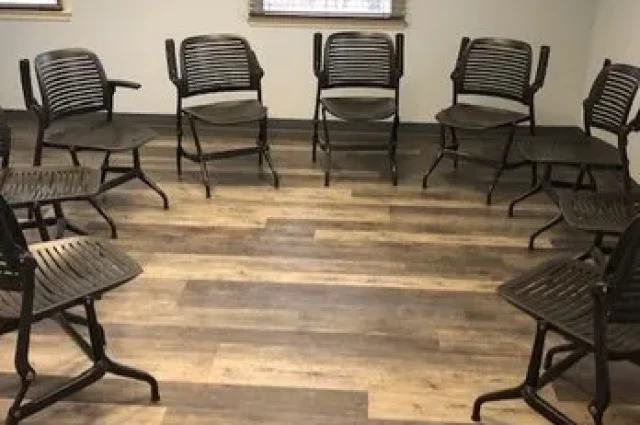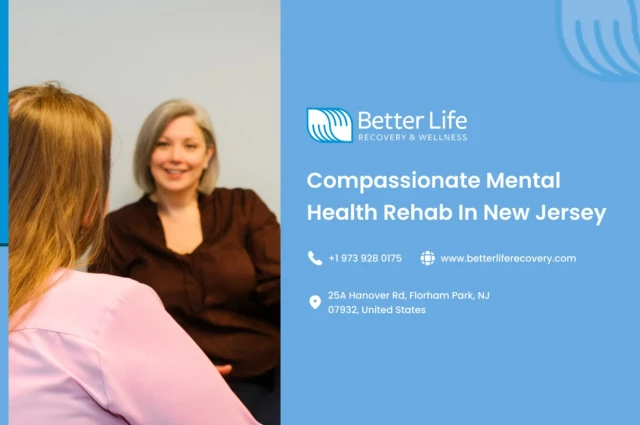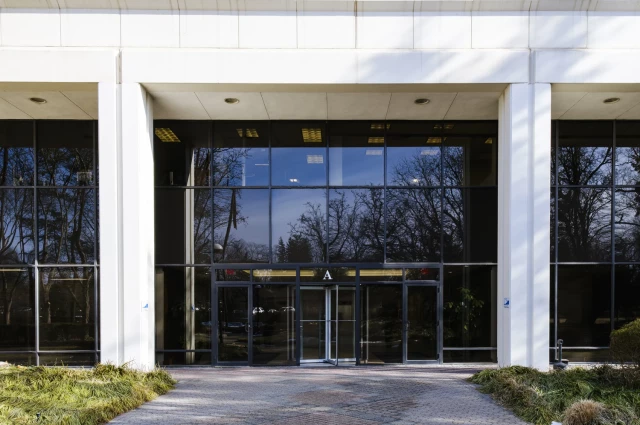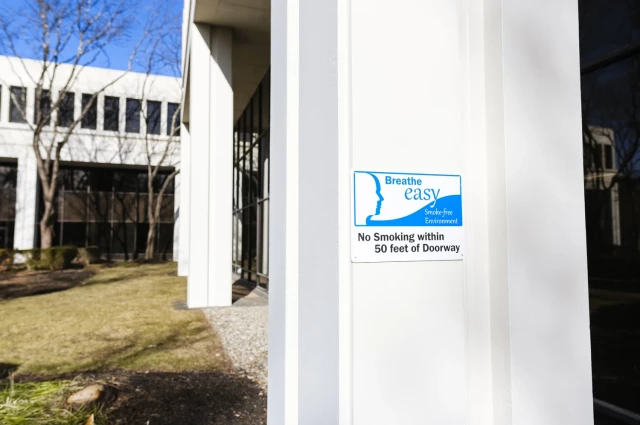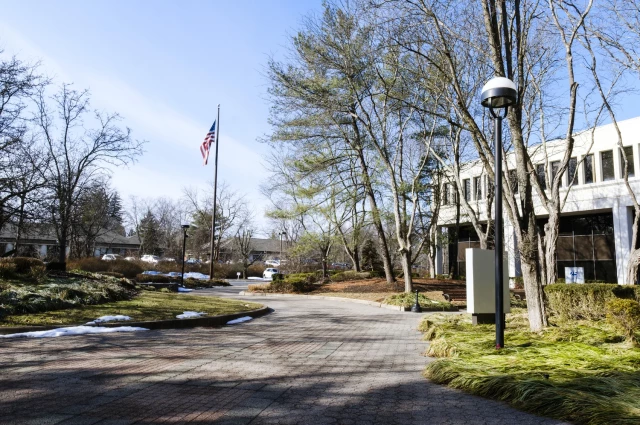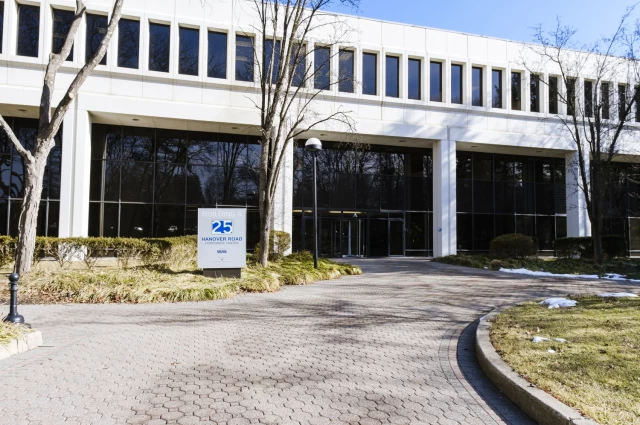Better Life Recovery and Wellness is a comprehensive drug and alcohol rehab center in Northern New Jersey, providing integrated treatment for substance use and co-occurring mental health disorders.
The facility offers a full continuum of care, including outpatient services, dual diagnosis treatment, and structured recovery support, tailored to the clinical needs and life circumstances of each client. Programs address alcohol dependence, drug addiction, and psychiatric conditions such as anxiety, depression, and trauma-related disorders.
Personalized treatment plans incorporate evidence-based therapies, including cognitive behavioral therapy (CBT), motivational enhancement, and relapse prevention strategies. Licensed clinicians and mental health professionals deliver care in a secure, respectful environment that supports emotional healing and behavioral transformation.
Better Life Recovery emphasizes clinical excellence and long-term recovery outcomes, fostering wellness through compassionate support and individualized care for both individuals and families navigating addiction treatment in New Jersey.
Better Life Recovery and Wellness Information
Treatment
Who We Treat
- Male and Female
Treatment Focus
- Outpatient
- Day Treatment
- Drug Addiction
- Intensive Outpatient Program
- Alcohol
Approaches
- Evidence-Based
- Family Therapy
- Group Therapy
- Sound Therapy
- Holistic
- Trauma Informed
- Cognitive Behavioral Therapy (CBT)
- Dialectical Behavior Therapy (DBT)
- 1-on-1 Counseling
Substances We Treat
- Benzodiazepines
- Prescription Drugs
- Alcohol
- Heroin
- Cocaine
- Methamphetamine
- MDMA/Ecstasy
- Synthetic Stimulants (Bath Salts)
- Ecstasy
- Psychedelics
- Synthetic Drugs
Languages
- English
Aftercare
- Intensive Outpatient Program
- Support Meetings
Level of Care
- Outpatient
- Intensive Outpatient Program (IOP)
- Day Treatment
- Virtual & In-Home Care
Experience
Smoking and Vaping Policy
- Smoking Allowed in Designated Areas
- Vaping Allowed in Designated Areas
Accreditations
-
State department of health
Government agencies issue State Licenses, which grant rehabilitation organizations permission to conduct their operations lawfully within specific geographic regions. Licenses needed to operate are typically determined by the type of rehabilitation program offered by the facility and its physical location.

Find the best treatment options. Call our free and confidential helpline today!
